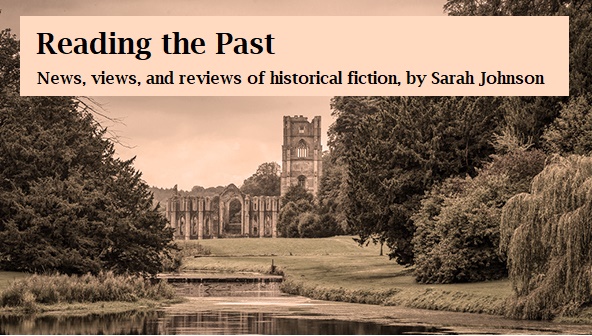Five novels I didn't expect to like but did:
(1) Isabel Allende, Daughter of Fortune.
For years, I mistakenly had the impression that Allende's works were obscure and inaccessible. Silly me. This was a rollicking good story about Chilean and Chinese immigrants during the California Gold Rush; the sequel, Portrait in Sepia, was equally well done.
(2) John Ensor Harr, Dark Eagle.
Biographical novel about a man whose name is synonymous with "traitor" - it promised lots of battles, names, and dates. Sounded dry. But the story behind Benedict Arnold's treason wasn't as simple as it appeared. Great characterizations here, especially Arnold, his much younger wife Peggy Shippen, and Major John Andre.
(3) John Lanchester, Fragrant Harbor.
What I thought would be a typical coming-of-age story about an naive young Englishman in pre-WWII Hong Kong was a poignant, engrossing novel about love and corruption in a brilliantly realized locale, depicted vividly and with a certain irony ("Hong Kong" translates as "fragrant harbor").
(4) Beverly Swerling, City of Glory.
I didn't care for Shadowbrook as much as I'd hoped - loved the unusual French and Indian War setting, but didn't sympathize with the characters, and felt the plot dragged throughout - but was pleasantly surprised by City of Glory. A very entertaining saga set amid the War of 1812 in Manhattan. Review forthcoming.
(5) Rennie Airth, River of Darkness.
A serial killer stalks the Surrey countryside in the post-WWI years. Blood, guts, and forensics, with lots of gross bits. Ugh. But the intense psychological drama and gripping storyline won me over. I'd gladly read the next in the series, although so far I haven't.
Five novels I expected to like but didn't:
(1) Nicole Galland, The Fool's Tale.
This one had great potential. A love triangle between a king, queen, and the king's fool in 12th century Wales. The author did some research on medieval Welsh law, and the romantic subplot was compelling, but I found the fool's antics (not to mention his very existence) ridiculous and totally out of keeping for the period.
(2) Judith Koll Healey, The Canterbury Papers (UK title The Lost Letters of Aquitaine).
A classic example of good story and bad history. I have a thing for novels about obscure royal women, so this historical adventure about Princess Alais of France, who became Henry II's mistress while betrothed to his son, appealed to me. But there are many chronological impossibilities, especially regarding historical figures, and the characters' actions were more modern than medieval.
(3) Audrey Howard, As the Night Ends.
Generally I enjoy Audrey Howard's regional sagas, despite the melodramatic tone that's crept into the last few. But this one had an annoying heroine - it's hard to root for a romance when you feel sorry for the hero - and it covered too much historical ground. Nearly every major event in early 20th century British history was crammed into an already overstuffed storyline.
(4) Catherine Jinks, The Gentleman's Garden.
All the novels by Jinks that I've read take a slightly different tone. The Inquisitor was a dark and serious medieval thriller; The Notary was a bawdy medieval romp. This literary romantic novel of 1814 Australia was written in the style of Austen and Eliot (per press materials), but I never warmed to the standoffish female lead, and the pace was incredibly slow.
(5) Prince Michael of Greece, The White Night of St. Petersburg.
A star-crossed romance of a Russian grand duke, the mistress he couldn't give up, and the financial havoc they caused. Terrific potential. But it's hard to feel sympathy for a protagonist with so little common sense, and the author's dry and plodding style didn't help things.










Very interesting, Sarah! Unfortunately (or fortunately) I haven't read any of the novels, though I think it's a shame that The Canterbury Papers/Lost Letters of Aquitaine proved so disappointing - I thought the idea of the novel sounded very promising. Have you tried Nicole Galland's latest one - Revenge of the Rose, I think it's called?
ReplyDeleteHi Alianore - no, I haven't tried it, but I own a copy (ARC). It will be in the TBR pile for a long while, I fear. It's set in a real Europe ruled by a fictional Holy Roman Emperor (named Konrad), and the author's note at the end advises readers to stop looking for historical verisimilitude because "it's just a story." I admit I have a problem with this.
ReplyDeleteThe reviews of Revenge on Amazon do make it sound like an odd hotch-potch of events, cultures, and so on. I'm not sure if it appeals to me or not, though to judge by the author's note, I'll probably give it a miss.
ReplyDeleteThe synopsis of Canterbury Papers states that it's set in the early 1200s, but when I used the 'search inside' function, Alais mentions that she's not married. Historically, she married the count of Ponthieu in 1195, didn't she? And her 'voice' sounded a little odd, too.
Yes, Alais' marital state is one of the historical errors. She also has King John and Isabelle of Angouleme as about the same age... and there's more. Margaret Frazer posted some enlightening comments on the CrimeThruTime list a while back - links to these posts (I believe the archives are public) are here and here.
ReplyDeleteMargaret's comments were interesting. And yes, it's a shame, when a book with so much potential is ruined because the author doesn't realize there's only so far most readers are willing to suspend their disbelief.
ReplyDeleteThanks for the list of books you liked when you thought you wouldn't. I'll have to try a couple :-)